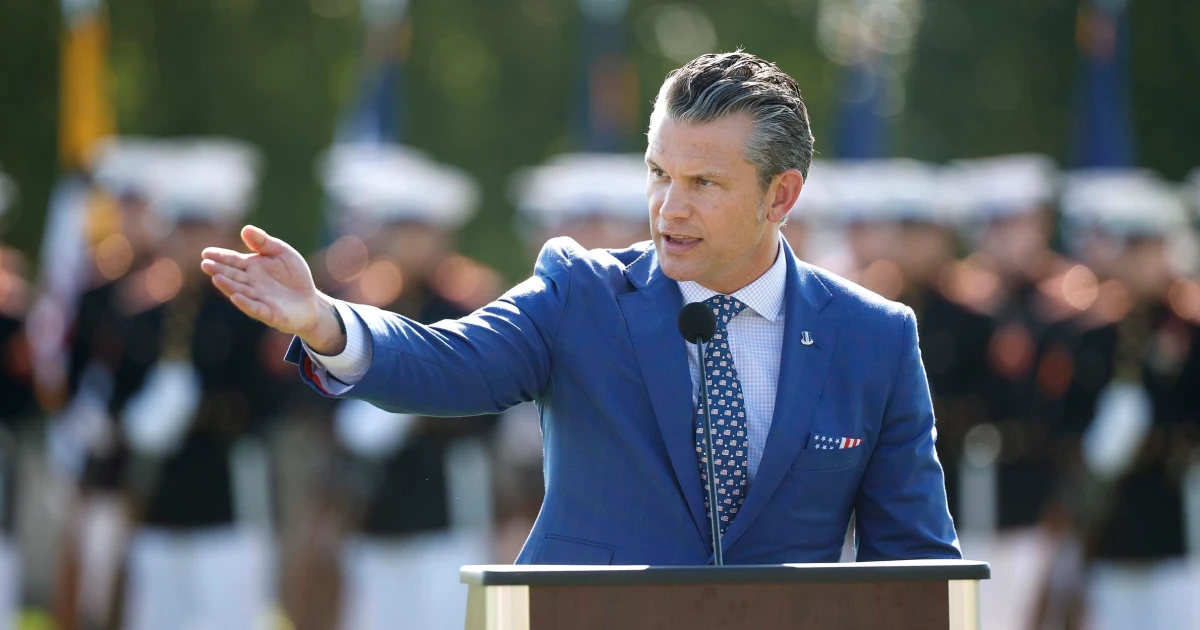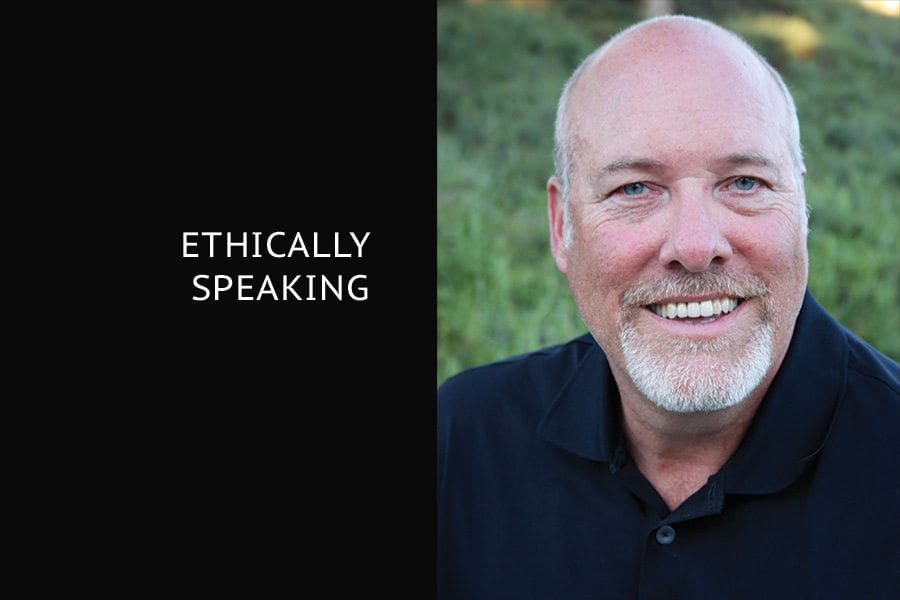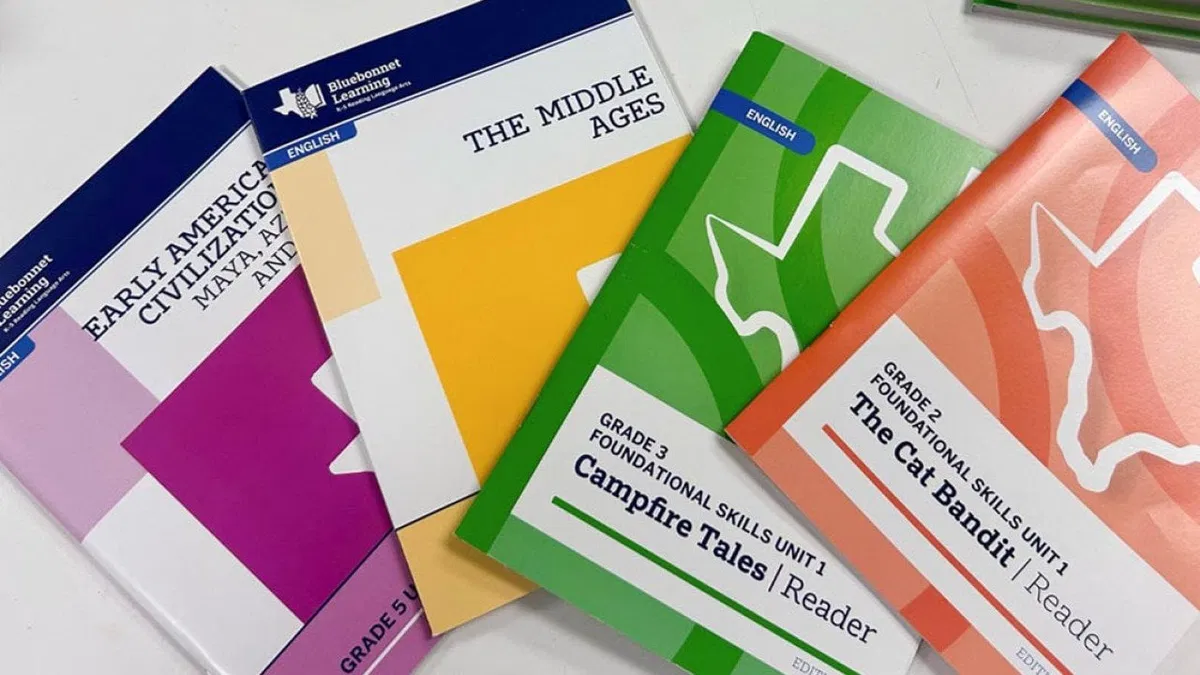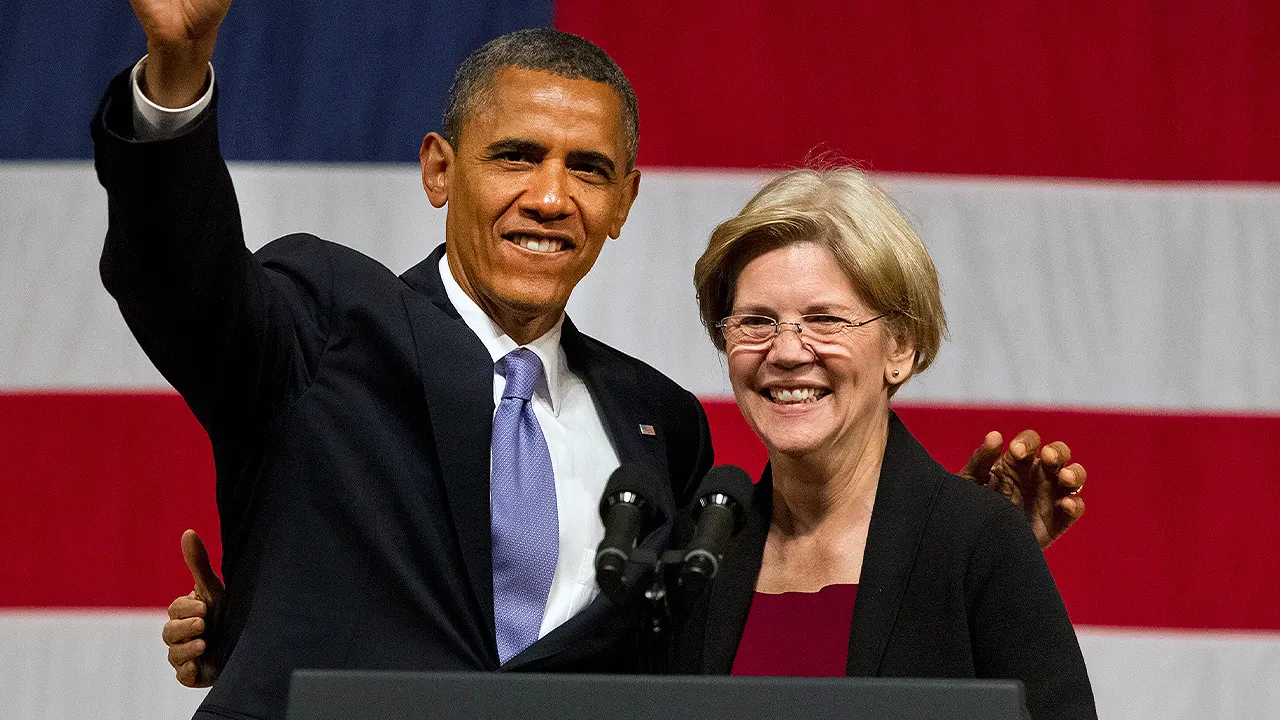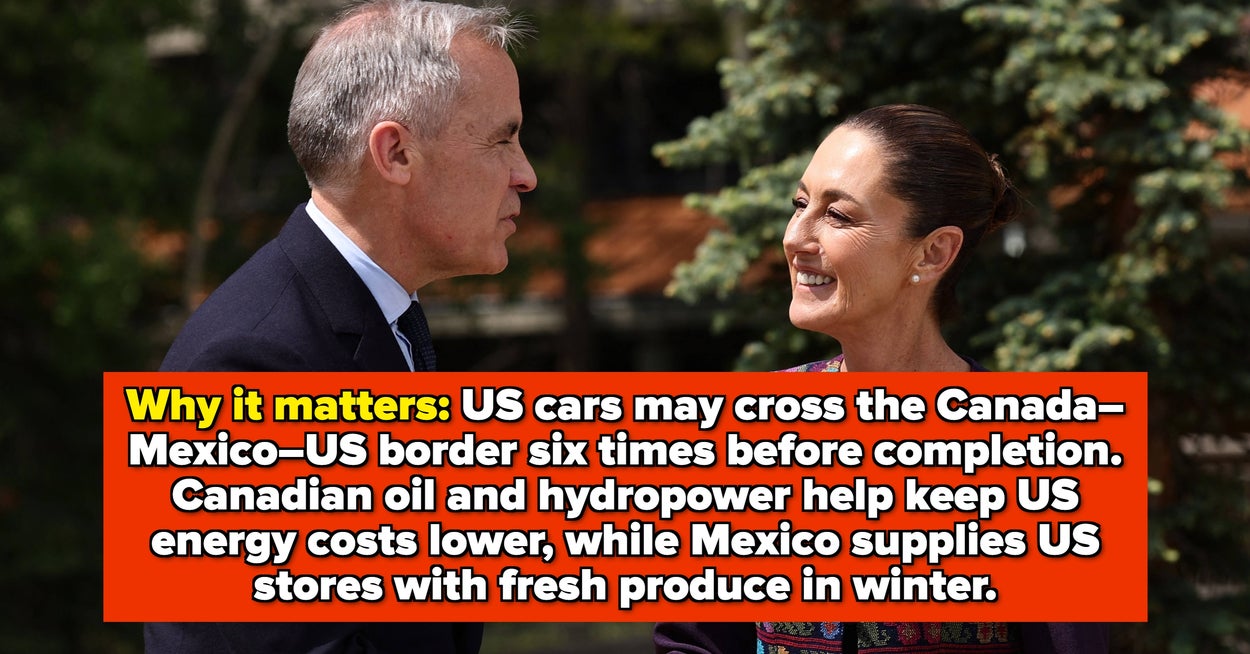
20 Huge Global Stories That Barely Made US Headlines — And Why They Actually Matter
From Europe fighting over a tribute to Charlie Kirk to Canada and Mexico uniting against US tariffs to Russia staging its own “anti-Eurovision,” these global stories are reshaping politics and culture — but they’re barely registering in US headlines.
With domestic politics consuming so much bandwidth in American media, it’s easy to miss how rapidly the rest of the world is evolving. From monetary policy shifts that affect global borrowing costs to migration deals that test democratic norms, international developments are quietly reshaping the systems Americans depend on daily. Here are 20 stories making headlines overseas that deserve attention for their broader implications on everything from travel costs and supply chains to security alliances and cultural soft power:
1. The US will nearly double its Electronic System for Travel Authorization (ESTA) fee from $21 to $40 on September 30, affecting citizens from 41 visa-waiver countries, including most of Europe and the UK. The increase comes as US arrivals are already down more than 3 million compared to 2024, undermining expectations of post-pandemic tourism recovery. Additionally, a new $250 “visa integrity fee” will hit travelers from non-waiver countries like Mexico, China, and Brazil starting October 1.
2. Canada and Mexico agreed to strengthen trade and security cooperation as both face mounting pressure from US tariffs. Prime Minister Mark Carney and President Claudia Sheinbaum met in Mexico City, pledging closer collaboration on infrastructure projects like ports and energy corridors. While stressing commitment to the US–Mexico–Canada Agreement (USMCA), both leaders signaled a desire to reduce Washington dependence after the US imposed 50% tariffs on Canadian steel and 25% “fentanyl tariffs” on Mexico. The summit comes ahead of the 2026 USMCA review.
3. The European Central Bank left all three policy rates unchanged on September 11, keeping the deposit rate at 2% while new forecasts nudged 2025 growth up to 1.2%. The decision follows a late-July EU–US deal capping most American tariffs on European goods at 15%, easing trade uncertainty that had clouded economic projections. ECB President Christine Lagarde dismissed market volatility concerns and urged governments to focus on competitiveness reforms.
4. Conservative MEPs erupted in Strasbourg after Parliament leaders blocked a proposed minute of silence for US activist Charlie Kirk, who was killed while speaking at a Utah college. Right-wing groups argued that previous tributes, including to George Floyd in 2020, set a precedent for honoring significant American figures. But Vice President Katarina Barley ruled against the commemoration on procedural grounds, sparking protests from conservative benches who saw partisan double standards at work.
5. Russia held its first Intervision song contest in Moscow, reviving a Soviet-era format after being banned from Eurovision in 2022 over Ukraine. Backed by President Putin, the event drew 23 countries, including China, India, Brazil, South Africa, Saudi Arabia, the UAE, Cuba, and Belarus, framing itself as a platform for “traditional family values.” Vietnam’s Duc Phuc won with a folklore-rooted performance, while Russia’s nationalist pop star “Shaman” withdrew as the host nation.
6. Millions of Europeans are participating in this year’s European Heritage Days throughout September, with thousands of cultural sites opening free to the public. The 2025 theme focuses on “architectural heritage,” featuring guided tours and workshops across the continent. Since launching in 1989, the annual event now draws over 20 million visitors and has awarded the European Heritage Label to symbolic sites like Brussels’ Royal Theatre Toone and Spain’s Monastery of San Jerónimo de Yuste.
7. Saudi Arabia and Pakistan signed a sweeping mutual defense agreement declaring that any attack on one will be treated as an attack on both. Crown Prince Mohammed bin Salman and Prime Minister Shehbaz Sharif sealed the deal in Riyadh on September 17, building on decades of security cooperation. Since 1967, Pakistan has trained more than 8,000 Saudi soldiers. Officials stressed that the pact institutionalizes existing ties rather than responding to specific threats, though it comes amid regional upheaval following Israel’s September 9 strike on Doha, Qatar.
8. Australia’s bid to deepen security ties in the Pacific stalled again as Prime Minister Anthony Albanese left Papua New Guinea without signing the anticipated Pukpuk Treaty. This mutual defense pact would represent Australia’s first new alliance in over 70 years. Instead, leaders signed a defense communique, citing delayed cabinet processes. The setback follows a similar stall in Vanuatu, where concerns about sovereignty and Chinese financing put a $330 million security pact on hold.
9. Taiwanese President Lai Ching-te declared the island nation “determined to defend freedom and democracy” and vowed it would never surrender to Chinese invasion during Taiwan’s largest-ever arms show. He highlighted a new civil defense handbook to prepare citizens for war or natural disasters, stressing that any claims of capitulation would be false. US defense firm Shield AI was among the companies deepening partnerships as China ramps up military pressure on the territory it claims as its own.
10. Fourteen West Africans deported from the US to Ghana were subsequently sent to their home countries, including Nigeria and Gambia, despite lawyers warning that some faced torture or persecution risks. US authorities used Ghana as a “third country” to bypass deportees who couldn’t legally be sent directly home, sidestepping immigration court protections. Ghana’s foreign minister defended the move as a “humanitarian principle and pan-African empathy,” saying it spared fellow West Africans from indefinite US detention.
11. Europe’s largest low-cost airline, Ryanair, is slashing nearly two million seats to Spain this winter, closing its Santiago base, and suspending multiple routes in response to a 6.5% increase in airport fees. CEO Michael O’Leary blasted the increase as “excessive,” though Spanish officials note Ryanair’s own fares are up 21% this year. Competitors, including Vueling, Iberia Express, and Wizz Air, are quickly moving to fill the gap, even as Spain welcomed a record 55.5 million international visitors in the first seven months of 2025.
12. Philippine police arrested 49 people after violent clashes near the presidential palace during mass anti-corruption demonstrations in Manila. While over 33,000 rallied peacefully, about 100 others armed with clubs and firebombs battled officers, injuring 70 police and vandalizing buildings. Public anger centered on revelations that lawmakers and contractors pocketed huge kickbacks from flood-control projects worth billions of pesos, intensified when a wealthy couple linked to the scheme flaunted luxury cars, including one worth $737,000.
13. Brazil’s lower house voted to expedite an amnesty bill potentially pardoning thousands of supporters of far-right former president Jair Bolsonaro who were convicted for the January 2023 storming of Congress, the Supreme Court, and the presidential palace. The preliminary draft covers all “political demonstrations” from October 2022 onward, with some lawmakers wanting it extended to Bolsonaro himself, who received a 27-year prison sentence last week for plotting a coup. Backers frame it as promoting “peace,” while critics call it an attempt to protect Bolsonaro and undermine accountability.
14. Indonesian President Prabowo Subianto appointed retired Gen. Djamari Chaniago as security minister after deadly protests over lawmakers’ lavish perks left at least 10 dead. Unrest erupted when revelations showed all 580 parliament members received housing allowances nearly 10 times Jakarta’s minimum wage, escalating after police killed a ride-hailing driver. The violence led to the dismissal of five ministers, including respected finance minister Sri Mulyani Indrawati. Chaniago, 77, once replaced Prabowo himself in 1998 during Indonesia’s transition from dictatorship.
15. South Korean President Lee Jae-myung warned that a proposed US trade deal requiring Seoul to invest $350 billion could destabilize his country’s economy. The agreement would lower Trump-era tariffs on South Korean goods in exchange for massive investments, but Lee said pulling that much money from Korea’s financial system without safeguards could trigger a crisis similar to the 1997 Asian financial meltdown. The sides reached a verbal agreement in July, but disputes remain over whether investments would be commercially viable.
16. Nearly 60 states from the Arab League and the Organization of Islamic Cooperation held an emergency summit in Doha after Israel’s September 9 strike in the Qatari capital targeting Hamas leaders. Leaders condemned the attack and declared solidarity with Qatar, with Turkey urging economic pressure, Egypt calling it a grave breach of international law, and Iran and Malaysia pushing for severed ties. Gulf and OIC leaders urged Washington and the UN to move beyond statements toward coordinated action.
17. Spanish police arrested 19 people suspected of murder and torture aboard a migrant vessel that left Senegal for the Canary Islands in August. Over 50 passengers disappeared during the voyage, with survivors reporting fellow migrants accused others of being “witches,” beat them, and threw some overboard alive. The wooden boat carried around 300 people when it departed, but only 248 survived after the Spanish rescue. Those detained face charges including homicide, torture, and facilitating irregular immigration.
18. Nepal’s interim Prime Minister Sushila Karki — the country’s first female leader — vowed to fight corruption, create jobs, and restore stability after youth-led protests forced out her predecessor, KP Sharma Oli. The unrest killed at least 72 people, injured over 2,100, and caused up to $1.5 billion in damage to government buildings in Kathmandu. Protesters, largely Gen Z, accused leaders of betraying promises of Nepal’s 2015 constitution meant to deliver prosperity and better governance after years of political turbulence.
19. The UK deported a second migrant under its “one in, one out” deal with France, sending an Eritrean man to Paris after he lost a court challenge. The pilot scheme means for every migrant Britain returns to France, it accepts one person from French asylum centers approved to come legally. The Home Office says the policy deters small boat crossings, which hit record highs this year, though critics argue it risks violating protections for trafficking victims. The deal represents a major shift since UK law typically requires asylum seekers to be on British soil to lodge claims.
20. A drone strike by Sudan’s paramilitary Rapid Support Forces killed at least 75 worshippers in a mosque in El Fasher, the last major Darfur city still held by government forces. El Fasher has been under siege for over a year, with satellite imagery showing RSF building earth walls to trap civilians inside. Rights groups warn of possible ethnically targeted massacres if the city falls, echoing atrocities in Zamzam and Geneina. Sudan’s civil war has killed over 150,000 people and displaced 14 million, making it one of the century’s worst humanitarian crises.
These stories reveal how interconnected our world has become — and how much gets lost when American media focuses primarily inward. From monetary policy decisions in Frankfurt that affect global borrowing costs to corruption scandals in Manila that weaken disaster preparedness, international developments shape the systems we depend on daily, often in ways we don’t immediately recognize. Whether it’s the EU grappling with American culture wars in its own parliament, or Canada and Mexico hedging against US unpredictability by strengthening their own ties, we’re watching the assumptions that have governed global politics since the Cold War get stress-tested in real time.
Which of these stories surprised you? Are there regions or types of international developments you think deserve more sustained coverage in American media? Let me know your thoughts in the comments below!
Thumbnail image credits:
Philippines: Thousands march in Manila protesting corruption, clashing with authorities by France24 English
PHÙ ĐỔNG THIÊN VƯƠNG – ĐỨC PHÚC | 🇻🇳 VIỆT NAM | WINNER OF THE INTERVISION 2025 by ĐỨC PHÚC OFFICIAL
